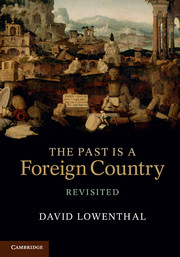Part III - Knowing the past
Published online by Cambridge University Press: 05 November 2015
Summary
The past is an immense area of stony ground that many people would like to drive across as if it were a motorway, while others move patiently from stone to stone, lifting each one because they need to know what lies beneath.
José Saramago, 2010The way of history is not that of a billiard ball, which, once hit, moves in a straight line, but like drifting clouds, or the path of a man sauntering through the streets, diverted here by a shadow, there by a knot of bystanders or by a striking facade, until at last he arrives at a place he never knew of nor meant to go to. Inherent in the course of history is considerable deviation.
Robert Musil, 1930What we know of the past is mostly not worth knowing. What is worth knowing is mostly uncertain. Events in the past may be roughly divided into those which probably never happened and those which do not matter.
William Ralph Inge, 1929In talking about the past we lie with every breath we draw.
William Maxwell, 1980The past is in myriad ways indispensable. ‘What we know, do not know, can and cannot know, what we should and should not believe about the past’, concludes a philosopher of history, vitally affects ‘our temporal orientation, personal identity’, and present conduct. Previous chapters explored the range of our needs and desires; this section surveys the mechanisms that acquaint us with the past, as a precondition of meeting those needs.
- Type
- Chapter
- Information
- The Past Is a Foreign Country – Revisited , pp. 289 - 302Publisher: Cambridge University PressPrint publication year: 2015



